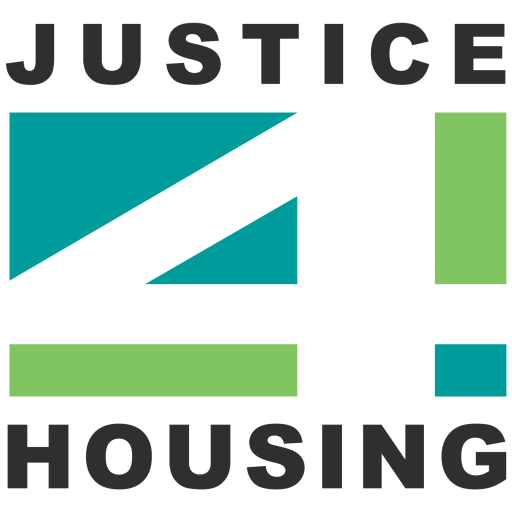
Justice-Involved Housing Search Tips
Review Your Own Criminal Offender Record Information (CORI)
Before you begin a diligent housing search, take some time and run a CORI check on yourself. That way you can better prepare yourself for negotiating a lease and applying for transitional housing. It takes a couple minutes to run the search and you are only charged a minimal fee. Use your CORI as a resource to better communicate with a potential property manager or landlord. You can start the process now by following this link.
Start with Reentry Programs
The best way to begin any housing search is to review the reentry listings for Massachusetts that have been compiled by the JobsForFelonsHub.com site. You can also obtain transitional housing options through these programs while you are looking for a permanent place to stay.
Look into Public and Subsidized Housing
While part of the reason Justice 4 Housing was founded is to address the archaic and discriminatory policies of Public Housing Authorities (PHAs), state and federal housing programs do technically offer protections for individuals with CORIs against blanket housing discrimination. PHAs are required by law to consider mitigating circumstances, which are factors that may provide context for CORIs, demonstrate growth or stability, and / or lessen the severity of criminal conduct, before making a final decision.
Justice 4 Housing maintains an updated list of affordable housing options here.
Don't Apply to Large Massachusetts Property Management Companies
Don’t waste your time by applying to large Massachusetts property management companies. Multiplex communities normally do not accept tenants with a criminal background. Stick to working with HUD or your local housing authority, and applying to programs that assist JIIs in reentry.
Understand Housing Discrimination Against Justice-Involved Individuals (JIIs)
If you feel that being turned down for an apartment rental is unfair because of your record, you are not alone. JIIs are regularly turned down for rental housing in large apartment communities in Massachusetts and all the other states in the U.S. That is because JIIs are not considered part of a protected class.
According to the Fair Housing Administration, individuals who apply for housing that are turned down because of their national origin, sex, ethnicity, race, religion, family status or disability are protected classes. This means that they can sue a property manager if he or she turns them down for housing for any of these reasons. However, a landlord is in their right to turn down a JII if he or she believes the applicant’s criminal history might pose a threat to his or her community.
Property managers in Massachusetts and all the other US states can also discriminate against applicants who have past evictions or have not paid their rent. When discrimination is based on a business transaction and fact, then it is never considered illegal and therefore is allowable by law.
Understand When Housing Discrimination Becomes Illegal
Legal discrimination becomes illegal when a property manager denies a housing applicant a rental based on their own biases. Therefore, any property manager who turns an applicant away because they have a personal prejudice towards the applicant’s ethnicity, family status, race, religion, national origin, disability or sex can be sued for illegal discrimination. When discrimination is mentioned, you cannot assume it is automatically illegal. You have to look at the basis for the practice.
For example, a JII who applies for a rental who was charged with the illegal use of drugs because of a mental or physical disability actually is in their right to rent the unit. That is because their charge stemmed from a disability – which is categorized as a protected class under the law.
However, individuals with CORIs are not part of a protected class on their own. Large property management companies are likely to deny housing applications to JIIs, and they are generally within their rights to do. Read more about illegal discrimination by referring to NOLO online.
While property managers can reject a JII’s housing application based on the applicant’s CORI, they also must make sure their decision is one that is based purely on fact. Any decision that extends to a protected class, such as ethnicity, sex, family status, national origin, disability or religion, can be cause for a lawsuit against the landlord.
For example, if a landlord rents an apartment to a JII who is from the U.S. but does not rent a unit to a JII from another country, he or she could get in trouble for discrimination based on national origin. The choice to rent or not to rent a residence must be based, again, on fact alone, not on the property owner’s personal preferences.
Consider the Massachusetts Religious Community
You can also inquire about housing leads by talking to your local pastor or contacting organizations that are faith-based. You might also think about working as a volunteer for a community-based organization. You can obtain leads for jobs and rentals through this venue as well.
Get Referrals from Friends and Family
Families and friends can also give you job and housing references. Just don’t ask the people who are close to you to lease an apartment on your behalf. If a landlord finds out that you are living as a “tenant” in an apartment but your name is not on the lease, you can get evicted or sued.
Additional Justice-Involved Housing Search Tips
Making Your Transition Work
While the transition from incarceration back into society is not easy, there are lots of community organizations that provide reentry support and who might be able to ease the burden. Justice 4 Housing works with our housing clients to get them connected to our partners for mental and physical health services, financial empowerment coaching and other crucial programs. Check out our partners here.
Prepare for Housing Tours
Start the housing search process by looking your best! Stop at the local thrift store to pick out a professional wardrobe, or find a local organization that can get you professional clothes for free. Next, schedule several appointments to look at rentals. If you are dressed professionally, it will make it easier to communicate in a business-like manner.
Establish a Routine
Once you obtain a rental, create a schedule for yourself. For example, plan out time each day to look for jobs, attend programs and go to appointments. Consider training and educational opportunities that will prepare you for your desired employment. Again, utilize reentry programs or ask family and friends to assist you in your job search or educational activities.
